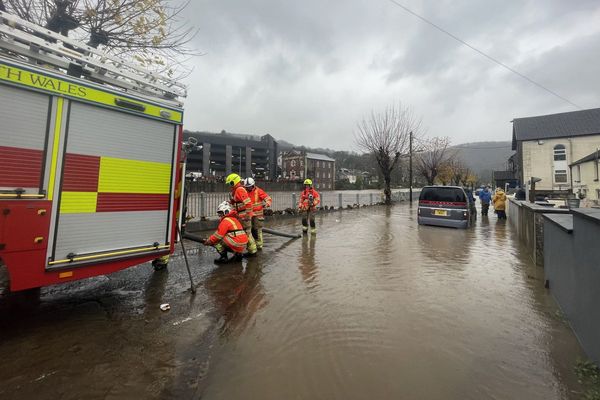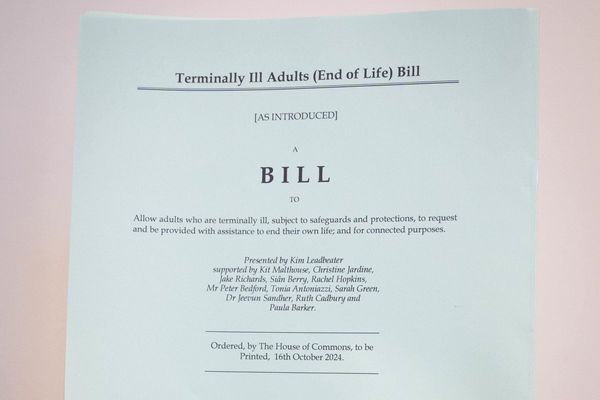
An industry that earns tens of billions of dollars a year in export earnings and employs a quarter of a million Australians generates significant negative externalities. What should a government do? Cap the exports, the government decides, in an effort to negate the externalities.
Another industry that earns tens of billions a year in export earnings and employs around 20,000 Australians generates significant, even catastrophic, negative externalities. What does a government do? Lavish taxpayer handouts on it and encourage it to expand without any effort to curb its externalities.
Welcome to Labor policymaking, 2024.
Australia’s higher education sector is bearing the brunt of the governmental reaction to the long-term debacle that is Australian housing policy, responsibility for which is generously spread across both sides of politics, all levels of governments, the media, NIMBY voters and the property development industry over the last few decades.
Universities, vocational training institutions (and the parasitic fake colleges that have collected like seagulls on a chip on the sector) are driven to rely so heavily on foreign students because neither side of politics has been prepared to properly fund higher ed — although unlike the Coalition, Labor isn’t openly hostile to universities, it merely prefers vocational education, which is more likely to churn out blue-collar voters.
After decades of a funding model made up of encouraging foreign students and increasingly punitive debt loads for domestic students, the externalities have long been clear: high levels of temporary migration putting pressure on housing in centres around tertiary institutions; the distortion in university priorities toward endlessly expanding foreign student numbers, an easily exploited workforce of young people from non-English speaking backgrounds; and young Australians facing the challenge of entering an expensive housing market carrying huge student debt.
Labor’s response has been to reduce the indexation of student debt — a sensible move that should be a first step toward lowering the overall debt burden on young people — and effectively cap foreign student numbers. It hasn’t imposed a hard cap on foreign student numbers, but it’s as good as, given institutions will have to show how they’ll accommodate any student numbers above the arbitrarily imposed threshold.
That is, the government has decided that universities and other tertiary education institutions are too successful in selling their products overseas.
Not merely does Labor want the sector to stop expanding its export earnings — which totalled $47 billion in 2023 — it believes it is too reliant on India and China and should find students from elsewhere, and it should be driving them into areas of Australian skill shortages, not allowing them to study what they think is best for their own lives and careers.
The contrast with the gas sector is extraordinary. Gas exports were worth around $70 billion in 2023 but are expected to settle back to around $50-60 billion a year in the near term. Unlike higher education, gas and oil extraction employs just 20,000 people, according to Australian Bureau of Statistics data. While the negative externalities of foreign students are limited to Australia, the negative externalities of gas are global — although as an economy especially exposed to the climate crisis, the results of those externalities are especially costly for us.
Imagine if the gas sector was treated like higher education: not only would further expansion of gas extraction be stopped, but the sector would be told to whom they could sell it and what use their customers had to make of the gas.
But instead of capping exports, Labor is encouraging the gas sector to expand its exports, and lavishing massive amounts of funding on them to enable that expansion — starting with half a billion dollars in free gas exploration over the next decade, along with generous handouts for gas export infrastructure. There will be no attempt to address the CO2 emissions of the sector beyond the risible fantasy of carbon capture — for which the government has also said it will pay.
“Carbon capture” is a phrase more aptly used to describe the Australian mainstream political class — in which both sides of politics are effectively administrators for fossil fuel companies. The negative externalities of gas companies like Santos, Woodside, Chevron, Shell and BP are not limited to CO2 emissions — they extend to the near-complete corruption of the Australian political process at the state and federal level, as well as the capture of much of the media class. Fossil fuel companies have the millions in donations, the post-public life board and managerial positions to offer, the revolving doors between government and corporations, and the broadcasting and publishing resources to cajole and threaten to protect their earnings.
Universities and higher education institutions have none of those things. Their political clout is minimal, even while they generate nearly the same levels of exports and, in the best case, help address skill shortages and enhance Australia’s soft power throughout the world. For all that they get punished. Soft power means something very different in Canberra, the capital of a carbon-captured petro-state.
Should Australia let foreign student numbers run free? Or will a cap help ease the rental crisis? Let us know your thoughts by writing to letters@crikey.com.au. Please include your full name to be considered for publication. We reserve the right to edit for length and clarity.







